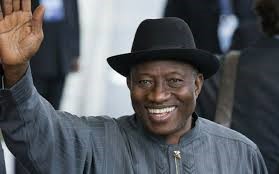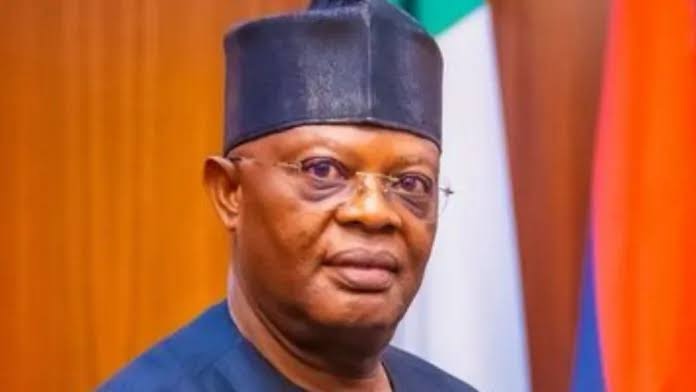Bauchi State governor, Bala Mohammed, recently expressed confidence that former President Goodluck Jonathan would do well in a future presidential role, highlighting the significant reforms introduced during Jonathan’s tenure.
The governor was responding to a non-governmental organization’s call for him to consider a presidential run in 2027. The organisation had awarded him the title of “Champion of Peace, Unity, and Development”.
Governor Mohammed affirmed that he would be open to any leadership role, provided that Jonathan is not also running.
“With regard to your call for me to present myself, I am still contemplating my chances as the leader of the opposition. I know there are good leaders within the PDP, especially my boss Goodluck Jonathan,” the governor said.
“I have always said that as long as Jonathan is around, I will not present myself for leadership of this country, unless he decides not to run. If we can persuade him to come forward, I will support him with my blood. Out of modesty, he is still not ready. I hope you will meet him and encourage him to run,” he said.
Jonathan was Vice President to Umaru Musa Yar’Adua from 2007, but was sworn in as President after the death of Yar’Adua in 2010. He ran for President in his own right in 2011 on the platform of the Peoples Democratic Party (PDP) and won. He contested for a second term in 2015 but lost to Muhammadu Buhari of the All Progressives Congress (APC).
This is not the first time that former President Jonathan has been called to have another go at the presidency. Prior to the 2023 general election, there was an extensive call by several groups mostly from the northern parts of the country. A Fulani group was said to have bought the APC presidential form for Jonathan and persuaded him to accept to run for the presidency, a request Jonathan turned down at the end of the day.
THE JONATHAN ERA
Nigeria recorded impressive economic growth during the administration of President Jonathan (2010-2015), becoming Africa’s largest economy in 2014. In 2014, Nigeria rebased its GDP, increasing the estimated size of the economy by 89 per cent. High global oil prices during most of the Jonathan Presidency boosted Nigeria’s oil revenues. Initiatives to diversify the economy, such as agriculture and manufacturing, also contributed to growth.
Jonathan launched the Almajiri Education Programme to reduce the number of out-of-school children in Northern Nigeria; implemented reforms in the power sector, leading to some improvements in electricity generation, transmission, and distribution; launched the Nigeria Industrial Revolution Plan to diversify the economy and promote industrialization; introduced policies under the Agricultural Transformation Agenda to boost agricultural production and reduce food imports; initiated the Youth Enterprise with Innovation in Nigeria (YOUWIN) programme to support young entrepreneurs and create jobs, and the Subsidy Reinvestment and Empowerment Programme (SURE-P) to invest the proceeds from fuel subsidy removal in social programmes.
Other notable achievements of the Jonathan era include the Nigeria Mortgage Refinance Company (NMRC) established to increase access to housing finance; the Presidential Committee on Dialogue and Peaceful Resolution of Security Challenges in the North set up to address insecurity in the North; the 2014 National Conference convened to discuss Nigeria’s future and address challenges, and introduction of e-government initiatives to improve public service delivery.
The Jonathan administration, however, faced criticism for high levels of corruption and inability to contain insecurity, particularly in the northeastern region where Boko Haram insurgency escalated. Thus, in 2015, Jonathan became the first sitting president in Nigeria to lose an election to an opposition candidate.
ENTER APC
The Muhammadu Buhari administration (2015-2023) practically rolled back the achievements of the Jonathan years, taking Nigeria many years back. The Buhari years were marked by economic difficulties, including high unemployment, inflation, and excruciating poverty.
The Nigerian economy slipped into recession twice during the Buhari Presidency, and security concerns persisted, with escalated farmer-herder clashes and Boko Haram attacks, banditry, and kidnapping.
The current administration of Bola Tinubu seems to have taken the economic hardship notches higher. Since President Tinubu assumed office in May 2023, the Nigerian economy has taken a nosedive, with inflation hitting an all-time high and the local currency, the naira, taking a beating against foreign currencies. The removal of petrol subsidy by the Tinubu administration, a significant policy shift, led to a sharp increase in petrol prices. This has had widespread economic implications, contributing to higher transportation and increased costs of goods and services and worsening the cost of living crisis in the country. There have also been security concerns, with insurgency in the northeast, banditry in the northwest, and communal clashes in various regions.
WHY THE CALL FOR JONATHAN’S RETURN
Jonathan, when he was president, brought a lot of infrastructure to the North, most especially the Almajiri schools that he built to reduce out-of-school children in the North. Also, majority of the federal universities established by the Jonathan administration were sited in the North. Even though Jonathan’s defeat in 2015 had the signature of the North, a taste of hardship in the last nine years under the APC-led government may have reset their brains to seek a viable route out of the woods
The recent EndBadGovernance protest across the country, which was necessitated by the prevailing hardship in the country since the advent of the Bola Tinubu administration, turned out more intense in the North, showing their level of discontent towards the Tinubu administration. This discontent may have led several Northern leaders, stakeholders and interest groups to shop for someone they can rely on to displace Tinubu in 2027. However, given that they would like power to return to the North by 2031, that is, after eight years of Southern Presidency, they would also want a Southerner who would do only one term. Jonathan, having done a term before, fits that description.
FINAL THOUGHT
On one hand, the renewed call for Jonathan to return as Nigeria’s president may be seen as reflecting a desire for a leader who can address Nigeria’s challenges and build on past successes. This argument is tenable given that the hardship brought about by the APC government in the last nine years has been felt more severely in the North.
On the other hand, however, the call could be seen as a selfish one by the Northern elite who are in search of an amenable president like Jonathan who can easily bend to their desires. Moreover, Jonathan can only do one term, paving the way for a Northern presidency in 2027. If the North were genuinely in search of good governance, the question is, why did they not cry out in the eight locust years of their kinsman, Muhammadu Buhari?
Whatever the case, it is left to be seen whether or not former President Jonathan would answer the call. A lot depends on his response.


